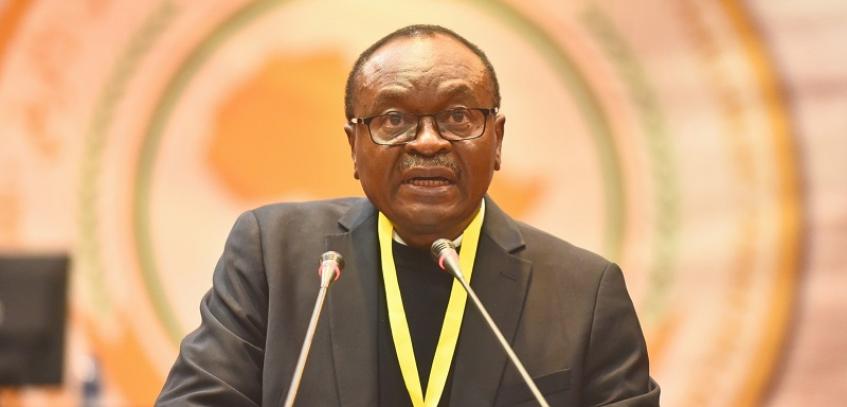The Chairperson of the Committee on Rural Economy, Agriculture, Environment and Natural Resources, Hon. Didier Molisho Sadi on Wednesday presented a summary of the work undertaken by the Committee since the last sitting in March, specifically around climate change.
Hon. Sadi successfully lobbied the Parliamentarians to adopt the Committee’s recommendations that ultimately seek to find solutions to climate change and implement legislation to help curb its impact on the continent. The Committee Chair gave an overview of some of the issues under investigation, including the sustainable management of soils, transforming agricultural system in response to climate change, and the impact of single-use plastics on the environment.
“Africa, as established by experts, out of all the continents emits the least pollutants and yet our agriculture and food networks have been hit hard, thus threatening food security,” he said. Hon. Sadi explained the urgency with which Africa needs to move in order to find solutions to these climate change-related challenges. He said that the Committee has been working with various partners on developing a Model Law on Soil Management to help the continent with a base, legislative framework that can be implemented by member countries.
“The committee is happy about the technical support we have received from German Ministry in charge of agricultural development and the Food and Agriculture Organisation (FAO), an organisation of the United Nations which shared its expertise on better soil management and utilisation for a better future,” Hon. Sadi said. The Committee has also been working with the European Parliament and has resolved to support and advocate for its Financial Transactions Tax on Climate Action with a view that the funds collected could be used to fund climate change solutions for Africa.
Hon. Sadi said that while climate change has an impact on Africans’ ability to access or use various food systems often leading to malnutrition and famine, it also offers an opportunity for us to rethink our agricultural and health systems. “By adopting sustainable and resilient methods, we can reduce emissions, manage our water better and export innovation potential and the co-operations that comes with that,” he said.
He said that the Committee had resolved to urgently come up with a proposal for the development of a Model Law on Climate Change for Africa. “The preparatory work on the model law will give us legal framework which is going to help us introduce measures that will deal with the impact of climate change,” Hon. Sadi added. The Committee Chair also reflected on last year’s 27th Session of the Conference of the Parties (COP27) of the United Nations Climate Change Conference (UNFCCC) where a “Loss and Damages” Fund was created to help the most affected countries. However, the funds are yet to be received by the Global South from the Global North.
Lastly, Hon. Sadi in summarising the Committee’s report also considered the recent Third PAP Summit on Climate Policy and Equity which took place on 16 and 17 May in Midrand, South Africa. “The main goal of the Summit was to contribute to galvanising a critical mass of stakeholders capable of catalysing broad support for pro-poor, just, equitable, locally-led and science-based decisions in NDCs implementation and overall climate action. The key milestones included a declaration for the establishment of a robust platform to facilitate the engagement of Parliamentarians in Africa, and the global climate discourse,” he said.
The Summit also proposed resolutions and recommendations that define the next steps and action points for Parliamentarians. These will enable them to participate effectively in the discussions about the transition to low carbon, climate-resilient, inclusive, fair, and equitable development pathways.








